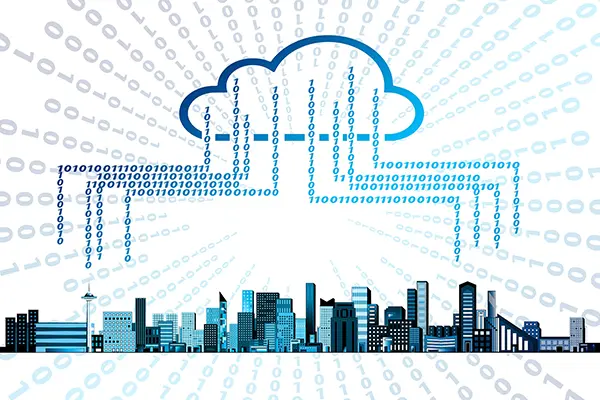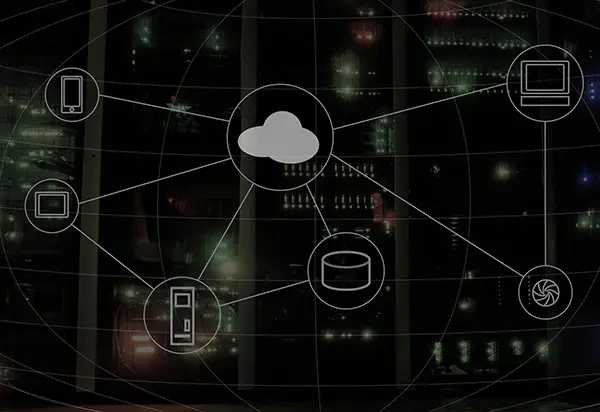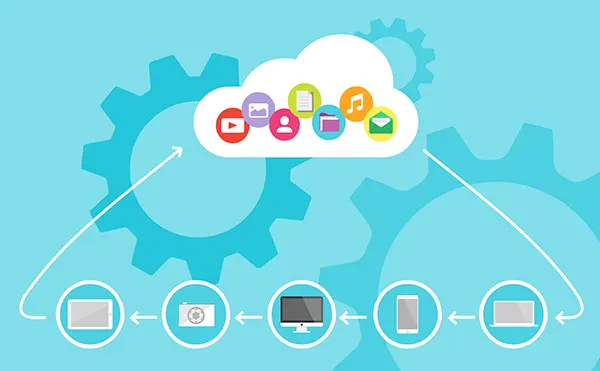What is the cloud?
DC the Computer guy
“What is the Cloud?” I’ve been asked this question many times over the years.
Anytime I answer it, I try to explain that it’s a deceptive question. A simple answer doesn’t typically give you enough information to really understand the concept, and more advanced answers require an understanding of complex network functions. Since I like to explain things in a way that everyone can understand, I’m gonna break “The Cloud” down to discuss both what it means and how it works and then talk a little about the kinds of cloud services available.
SO, WHAT IS THE CLOUD?
Let me start with the simple answer. The cloud is a computer that belongs to someone else; it is accessed over the internet and designed to store software and information securely.
As I mentioned, the simple answer doesn’t really give you enough information, but it’s a good place to start. One of the things people don’t realize is that when we’re talking about “The Cloud,” we are actually talking about a physical computer. The cloud is not some ephemeral digital place in the sky; it’s one or more powerful computers or servers housed in a data center somewhere in the world. These computers provide individuals and companies with the ability to securely store data and/or run programs without having to manage the hardware themselves. In addition, the files and applications can be run from various devices and locations, allowing for more flexibility in use and collaboration.

EXAMPLES OF THE CLOUD
Does the concept still feel a little daunting? Think about this: Facebook is a cloud-based program. In fact, all social media is cloud-based. Essentially, they are programs that run on a computer that belongs to someone else, allowing you to log in, share pictures and stories, and argue with strangers.
How about personal email? Email servers are cloud-based. Does your Doctor have a portal that you log in to view your medical records, schedule appointments, etc.? It’s cloud-based. Amazon? Yep, cloud-based. Netflix? You guessed it, cloud-based. If you use the internet, you are doing cloud computing.

How about personal email? Email servers are cloud-based. Does your Doctor have a portal that you log in to view your medical records, schedule appointments, etc.? It’s cloud-based. Amazon? Yep, cloud-based. Netflix? You guessed it, cloud-based. If you use the internet, you are doing cloud computing.
WHY IS IT CALLED THE CLOUD?
A good question. “Cloud” started as a slang term in the tech industry. Early technical infrastructure diagrams displayed self-contained networks with multiple workstation computers connected to one or more servers. When you look at a group of these segregated networks, it’s easy to imagine them as individual clouds. That became kind of a short-hand way of describing where specific processes were taking place. The term has evolved since then, but that’s where the base concept started.
HOW DOES IT WORK?
So, now we have a better understanding of what “The Cloud” means, but that doesn’t really fill in all the details. Knowing that it is a remote computer that runs programs and stores information is great and all, but to really understand “The Cloud” requires a basic knowledge of how it works.
The entire concept of “The Cloud” is made possible by virtualization – a technology that allows a remote computer to appear and behave like a physical computer.
What this means is that when you are running programs or accessing data stored on a cloud computer, it behaves as if it were on your local computer. But it might surprise you to learn that the cloud computer and local computer are not interacting at all. Nothing is installed or saved on your computer. Aside from the flexibility and collaboration advantages we discussed earlier, this virtualization tends to be more cost-effective than running and maintaining a server, and because they are designed with redundancies, even if an individual server goes down, cloud vendors typically have hardware in multiple regions.
This means that Cloud services are always online. Connected over the internet and accessed through a web browser or an app allows for an unprecedented amount of working flexibility.

DIFFERENT KINDS OF CLOUD
With this kind of technology, it should be no surprise that it can be deployed in various ways. The different models and types vary depending on customer needs and capabilities.
Rather than installing software on individual devices, SaaS applications run on cloud servers, allowing users to access programs over the internet. Having this type of service is like renting instead of owning; the landlord takes care of maintenance while the tenants use it.
With this model, companies pay for the operating systems, development tools, and infrastructure needed to build their own applications over the internet. This type of service allows for easy collaboration and is like renting the tools needed to build a house rather than renting the house.
Growing popular among small businesses (especially medical offices), in this model, both the servers to run programs and the space needed to store data are rented from the cloud provider. Companies can build or provide their own software to run their business. It’s sort of like renting a plot of land and putting up your own structure.
A new model of cloud computing, FaaS is also referred to as sever-less computing. In it, specific cloud applications are run only when needed, with the capability to scale up or down on demand. Technically, it all still runs on servers, just not on dedicated machines, allowing the cloud companies to manage their resources based on their customer’s needs. It’s like renting a room and then renting a dining room or living room only when guests visit.
This type of cloud service is a single server, data center, or network dedicated to one organization. Much more common in enterprise or corporate environments, these are scaled up or down as needed, hosting both services and data.
By far the most common type of cloud service, this is run by a vendor and can include servers in multiple data centers across various regions. Shared by many individuals or organizations, they do everything from handling personal storage and backups to running various hosted programs.
Working as a combination of public and private cloud services, organizations that opt for this type of service typically have an internal private cloud and an external public cloud. It is most often used as a portal to provide customers or clients with access to personal information.
Most commonly used by social media companies, this type of cloud service uses several public clouds to cover services from multiple external vendors, allowing many different services to be housed in one place.
FINAL THOUGHTS ON THE CLOUD
With so many cloud options available, deciding which to use for your business can be daunting. Back when I started Clark Computer Services, I had to take advantage of new technologies to help me manage my clients, and that hasn’t changed. We use many cloud services, and I’m always looking for new technologies to help us better support, protect, and communicate with our clients.
If you have any questions about Cloud services or want to discuss options to support or help with your business, please get in touch with us here at CLARK by emailing support@clarkcomputerservices.com or giving us a call at 301-456-6931.

President And Owner
I left big business to start Clark Computer Services in 2003; not because I had a grand vision, but because I had three young children who needed their Dad around. Knowing I had to replace my salary, I went door-to-door visiting small businesses to introduce myself and ask if they needed IT support. I heard story after story from business owners and office managers about IT companies not returning calls and emails, grumpy technicians showing up late or not at all, and systems being down for days, weeks, and in some cases…months. I realized quickly that there was a clear and pressing need for reliable, honest, and professional IT support completed pleasantly and on time.
